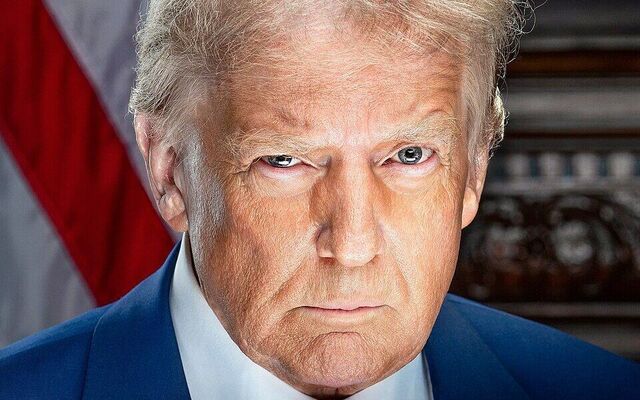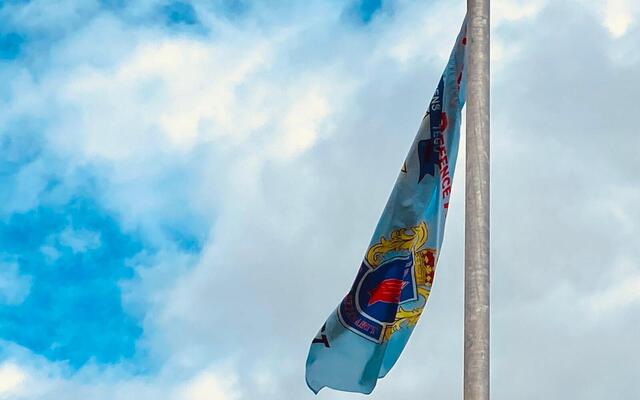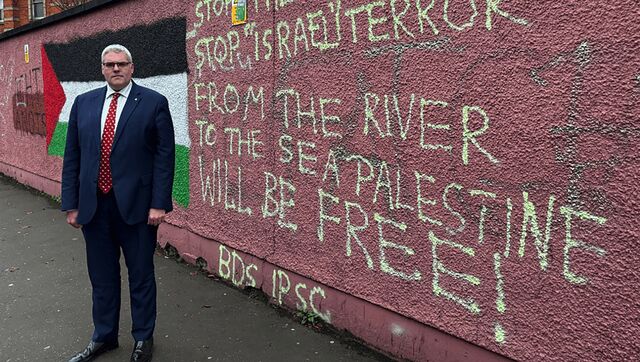IT was a short piece. 25 seconds short. But it was long enough to illustrate how tight a grip those responsible for the BBC’s pro-Israel reporting have on the Corporation.
The recent report by the Centre for Media Monitoring (CMM) laid out the truth about the past 21 months more startlingly than any words I could ever write. Their analysis of over 35,000 pieces of BBC content showed:
• Israeli deaths received 33 times more coverage than Palestinian deaths. (No, that’s not a typo: 33.)
• Israeli commentary was contained in reports 11 times more than Palestinian commentary.
• The word ‘murder’ was used 220 times to describe the death of Israelis, compared to once for Palestinians.
The CMM said the BBC’s coverage is “constructing a moral universe where Israeli suffering is inherently more tragic”.
I read the report with interest when it was released in mid-June, but stark as the figures are, they managed to raise neither of my eyebrows because I was under no illusion about the nature of the BBC coverage. I did, though, harbour a vague and perhaps naïve hope that the jaw-dropping discrepancies highlighted would shame the BBC into doing its job. But no, on they crack, and if it seems at present that the Beeb is being harder on Israel than it ever has been, that’s because Israel has massively upped the genocidal ante, and if there’s more BBC coverage of more murderous behaviour, it doesn’t make that coverage any more balanced, it just means there's more of the same.
9am on Friday morning and I’m gathering my stuff from the passenger seat of the car (three mandarins, two sandwiches, one laptop, if you're interested). On comes that vulgar, you-looking-at-me? Nolan intro which as usual I endure ahead of the news containing that 25-second France/Palestine report I mentioned earlier.
And what a quarter of a minute it is…
The first five seconds is an outline of the story: the French decision to recognise Palestine when the UN next convenes. Then we have four seconds of a quote from French President Emmanuel Macron, who said there’s “an urgent need for the war in Gaza to end.”
That left, let’s see now… 16 seconds remaining for the Israel position to be laid out. Oh, and that of the United States.
First up, Israel Prime Minister Benjamin Netanyahu, who we're told considers the French decision wrong because it “rewards terrorism”.
Next we hear from ‘Washington’. Not a Washington source. Not a Washington spokesperson. Just ‘Washington’. It believes the French decision to recognise Palestine is “reckless”.
Finally comes US Secretary of State Marco Rubio, who made it a Washington double. He said the French decision is “a slap in the face to victims of the October 7 attacks by Hamas.”
BALANCING ACT: The 25-second report contained quotes from Emmanuel Macron, Benjamin Netanyahu, Marco Rubio and... Washington
And that was it. 25 seconds. Five seconds of news. 20 seconds of quotes. 75 per cent of the 20 seconds of quotes coming from Tel Aviv, Washington and... Washington. And while the 25-second piece achieved the not-inconsiderable feat of failing to mention the starvation of the Gazan people that has led the French to act, it did mention October 7.
Who wrote the 25-second piece? I have no idea. Was it somebody in Belfast? Perhaps, but if it was, the BBC is more wasteful with our money than I had supposed, because what’s the point in every regional radio station from Norwich to Northampton doing the same job? Was it, then, a piece sitting in a central repository for use by the regions as and when required? That would make more sense, but, again, I haven’t got a clue.
And while I haven’t got a clue either about the editorial process that brought the item to air, I am fully cognisant of the fact that it takes an extraordinary commitment to the righteousness of the Israeli cause to write a piece like that. Here’s a BBC story about a world power defying the United States in protest at Israel’s starvation tactics in Gaza, and that story comprises four quotes: One from Macron, one from Netanyahu, one from Rubio, one from ‘Washington’.
It must have been quite the editorial meeting.
– Right, France’s Palestine recognition. What’ve we got?
– Opening line, then a quote from Macron and a quote from Netanyahu.
– Is that it?
– Yep, one each, nice and tidy.
– Nothing from Washington?
– Who?
– Washington DC.
– No.
– Nothing from Marco?
– Polo?
– Rubio.
– No.
– Let’s fix that.
– You want to put Washington in as well?
– Yep.
– Um, okay.
– And Rubio.
– That’s three quotes from people who are very angry with France and one quote from France.
– That seems about right, right?
– If you say so, boss...
The preponderance of Tories in top positions at the BBC is, of course, a key driver of the BBC’s pro-Israel coverage, but when you throw in the extraordinary effectiveness of the UK's pro-Israel lobby, then the prospect of anything approaching even-handed BBC reporting on Gaza becomes vanishingly small. The raucous and aggressive Labour Friends of Israel group combined forces with a range of pro-Israel groups to put massive pressure on states, talent agencies and music venues amidst the Kneecap/Bob Vylan hysteria. That axis scored significant success, damaging the careers and earning potential of those who came on their radar. How much easier was their job when it came to pushing at the door to a Tory-heavy BBC management team that wasn’t just ajar, but lying wide open?
Viewed in the bright light of the CMM report, that 3-1 BBCNI report on France/Palestine could well turn out to be one of the Corporation’s more restrained and balanced pieces on Gaza. In which case... thanks, Ormeau Avenue.








